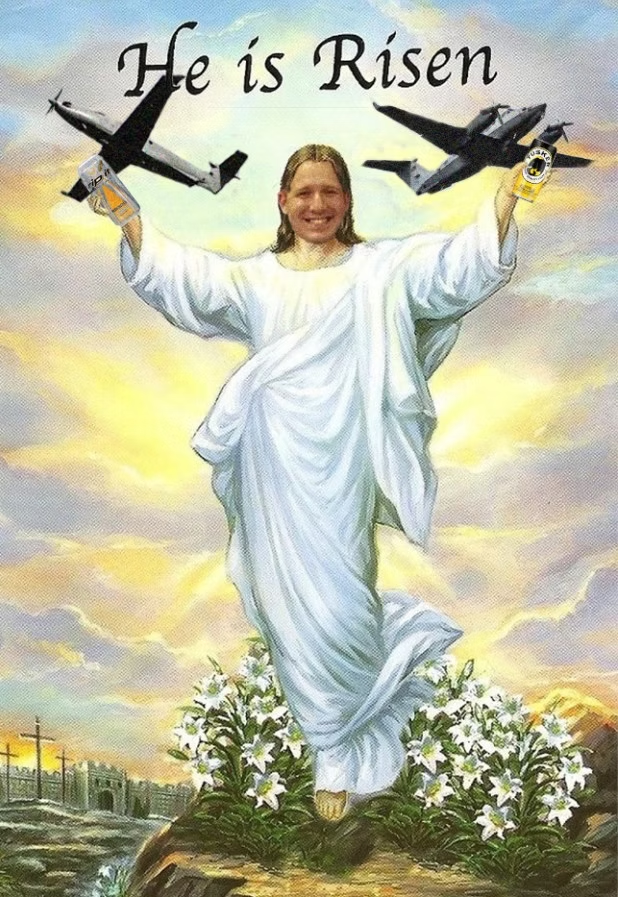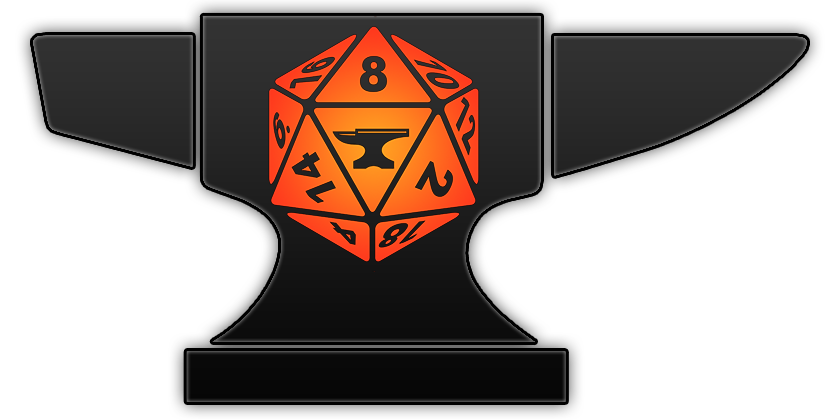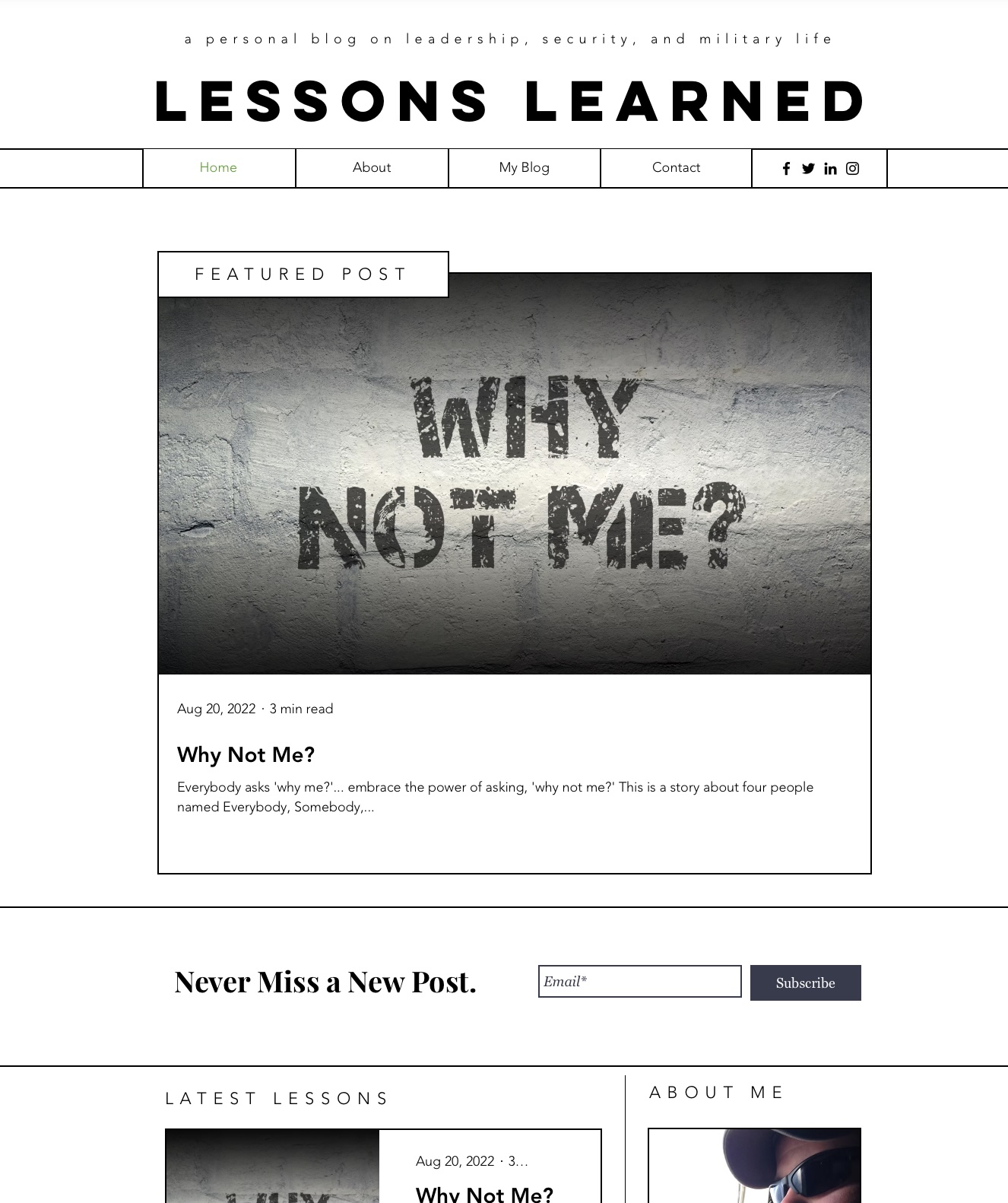An inspiring story of resilience from Master Sergeant Jake “TJ” Miller
MSgt Jake “TJ” Miller
Recently, a great friend of mine, Master Sergeant Jake “TJ” Miller, asked for some help editing a short autobiographical work focused on some of his very personal resiliency challenges. I met Jake back in 2014 while on deployment and was immediately taken by his incredible positive attitude matched only by the kind of savvy technical brilliance that comes with having a passion for one’s trade. Ever the humble Airman, I had only managed to drag out small bits of Jake’s story over the years. Reading everything was extraordinarily moving and inspiring for me. With his permission, I’m sharing it with you.
Introduction
Resiliency is more than just a buzz word we use in briefings or commander’s calls. Every one of us have encountered some type of roadblock and have been able to push through. Sometimes it feels like it may be too difficult to overcome. I have encountered, endured, and overcame many challenges that seemed all but impossible at first. I will share with you how I came to be an Airman, how I dealt with some significant issues, how I have recovered from setbacks, and the things I have learned along the way. I hope that by reading this that someone else can see that with a positive attitude and a good team by your side, that things may not be as insurmountable as we believe.
My First Life, Beginning as an Airman
I grew up in a small town in Michigan, and shortly after graduating high school in 2005, I joined the U.S. Air Force as a Korean Airborne Cryptologic Language Analyst (1A8X1). In June of 2007, near the end of the Korean language technical training at the Presidio of Monterey, California, I was selected for an immersion program at Yonsei University in Seoul, South Korea. As part of the preparation for the program, I had to receive the necessary vaccinations.
Within hours of receiving the Anthrax and Typhoid shots, I fell ill and was hospitalized the next day for what the doctors initially diagnosed as an Upper Respiratory Infection. They decided to perform a bronchoscopy. During the post-op, I developed complications that led to me coding and flatlining. Officially, I stopped breathing for roughly 4.5 minutes. After my airway was re-established, I spent almost a month in a chemically induced coma. Throughout the event, I fought day in and day out to try to stay alive. I had a medical team from all over the country working diligently to try to keep me going. I had family and friends by my bedside, trying their best to keep my spirits up. Although I was meant to be “out” during this experience, this was not the case. I was in and out of consciousness multiple times. I was unfortunately aware of my predicament as well as the toll it was taking on my family and friends. At some points, the pain and suffering were too much for me to bear. Thankfully, during the times I was coherent I was able to communicate by tapping out letters on a clipboard. Unfortunately, I continued to deteriorate. At one point, my doctors informed my parents that they would need to say their goodbyes, and a clergyman performed my last rites. I had multiple faiths represented; a Catholic Priest, a Nazarene Pastor, a military chaplain and even a Native American Medicine Man praying at my bedside. Whether it was my medical team or divine intervention, I eventually recovered well enough to be discharged from the hospital.
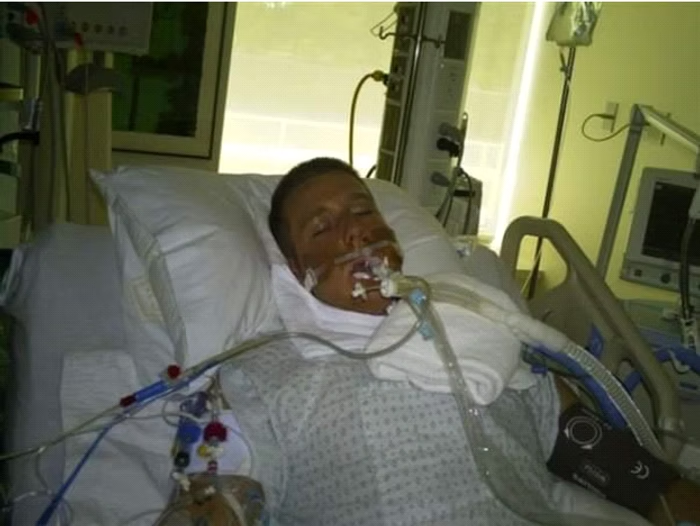
After my initial recovery, the Air Force assigned me to Wilford Hall as a 9P000 patient [An Air Force reporting identifier – Ed.]. This was an exceptionally trying time for me; my career and adult life were just beginning and already felt jeopardized. My mental health was really a problem at this time. I no longer felt like I had a mission, support system, or a clear path towards the future. Finding the light in such a dark time was extremely difficult for me. It seemed that this was the end of everything I had worked for. With the help of the Mental Health staff at Wilford Hall I was able to learn the tools I needed to once again find the light. I found new purpose in volunteering to help around the hospital in various administration positions. I also took great pride in helping other patients and wounded warriors with their care. Despite my gains in mental health my physical health was still struggling. Due to the enormous amounts of medications (up to a peak of 26 pills each day), I experienced several complications, including various medication interactions, seizures, and short in-patient stays.
Additionally, I also struggled with my body image and personal identity. Before the incident, I was an avid weightlifter and athlete. I went from 190lbs to 145lbs due to the atrophy and hospital stay. Following a year of high dose steroids, I ballooned up to 250lbs. I could no longer work out or even walk up a flight of stairs without nearly collapsing. The trauma of these compounding issues left me with many significant physical and mental scars, pushing me to get care from multiple specialty clinics. With the help of my care team and my fellow patients’ comradery, I was able to persevere.
The patient squadron consisted of numerous wounded warriors, cancer patients, and mental health patients from across all ranks and Air Force occupations. The ability for us to share our stories, struggles, and triumphs was incredibly helpful for our collective treatment. Having a team with shared experiences and shared goals kept our collective heads above the water. When I finally recovered to the point where I could begin exercising, another patient and I started taking martial arts classes. This was the turning point in my health. Seeing the progression in my abilities and the self-confidence it brought, started me back on the path to normal. Having another person there with me helped keep me accountable and provided a safe environment, as we were both going through similar challenges. With the help of my instructors and teammates, my health started to improve drastically. My mental health, in particular, reached the point where I no longer needed constant care. My weight quickly dropped, and I was able to get off all my medications. Finally, I was able to find a new lease on life.
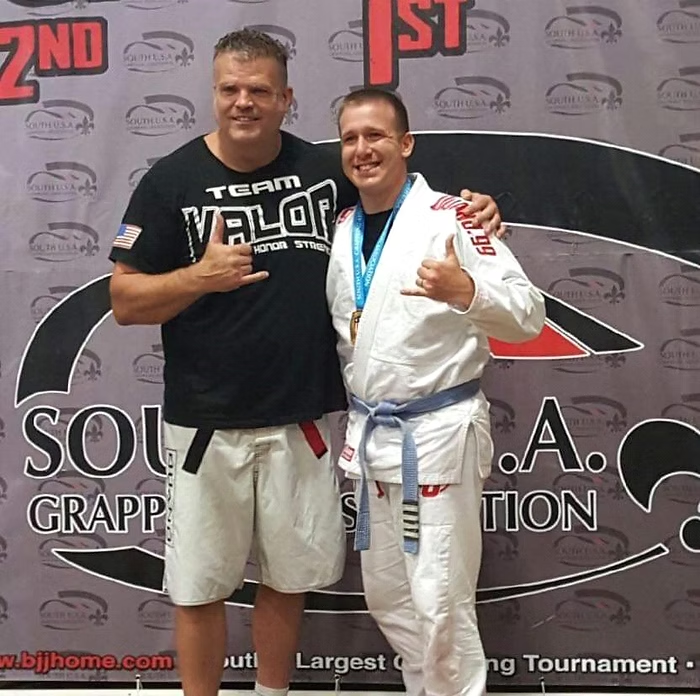
My Second Life in Recovery
After a year of recovery, I began working at the Air Force Intelligence, Surveillance, and Reconnaissance Agency (then AFISRA, now the 16th Air Force) Formal Training directorate (A3TF), assisting with all conversions for the emerging 1A8X2 Airborne Intelligence, Surveillance, and Reconnaissance Operator career field. I enjoyed working with some outstanding NCOs, SNCOs, Civilians, and contractors that remain in contact with today. Not only had my health improved, but now I had a purpose. From all my struggles in life, I have learned that having a day-to-day purpose in what I do has been the most important. Sometimes it is work, sometimes it is my personal life, and other times it is just getting the best workout I can. Today, I can quickly identify what areas I can work on and which ones must wait. Progress in one area of my life allows for the others to grow as well. An important lesson I learned from my time at A3TF was the powerful impact that each of us can have as supervisors, mentors, and leaders. Even though I was only a Senior Airman who had not graduated from my initial technical training, I had an extremely attentive and involved team who kept me motivated, gainfully employed, and made me feel like I was genuinely an essential teammate.
Around that time, the Air Force convened a medical board that determined “deployment support would be difficult, and I was clearly unable to perform an aviation job.” This was a devastating blow, as I had come so far – literally from the brink of death. I petitioned my leadership team, my care team, and even senior members of the AFISRA staff to write letters of recommendation and advocate on my behalf. I was fortunate that I had been attending regular unit physical training and martial arts practice several times a week. I took it a step further and received formal approval to take an Air Force fitness assessment; not something that the Air Force required of (or even allowed) typical 9P000 patients. I was absolutely determined to become an aviator and fulfill my commitment to the Air Force. With the help and recommendations of my leadership and care teams, I contested the board and won. I believe that this was at least partially thanks to a passing Air Force fitness assessment and my participation and successes in Brazilian Jiu-Jitsu.
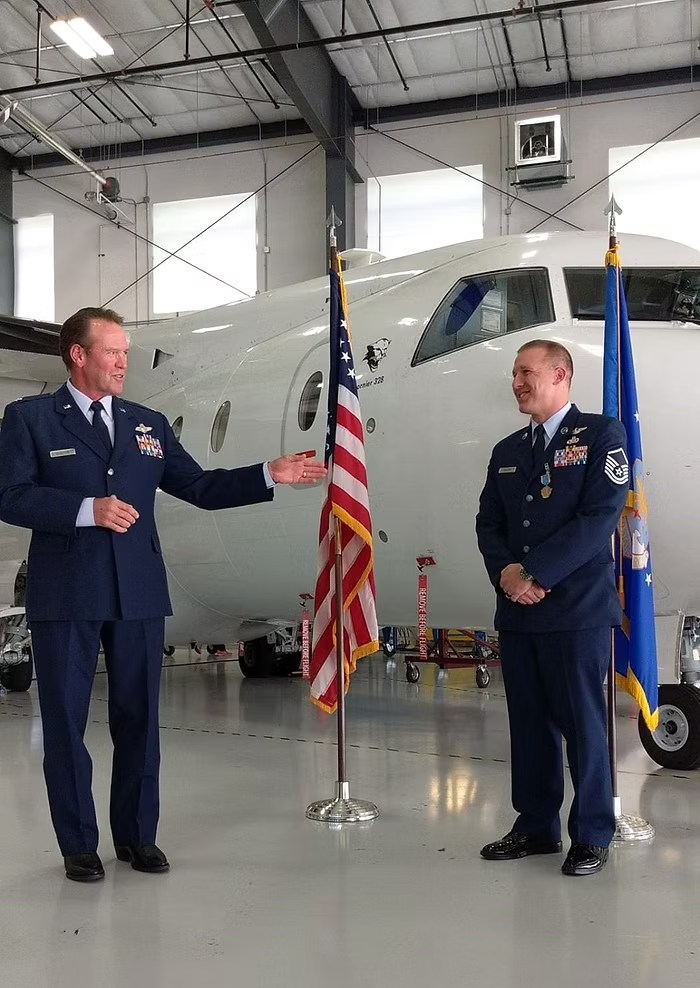
My Third Life as a Tactical Systems Operator
The Air Force formally converted me to the brand-new 1A8X2 in Dec 2009. I arrived at Hurlburt Field, Florida the next April to begin duty at the 25th Intelligence Squadron, quickly earning my qualification as a Tactical Systems Operator (TSO). In 2011, I departed for my first deployment of seven months and is still one of the highlights of my career. Not only had I recovered from a nearly fatal medical issue, but for the first time, I was able to do my job as a 1A8. In 2012, my peers selected me for aircrew instructor duty, followed by a second deployment. Later that year, my commander chose me to become one of his flight evaluators, a pinnacle milestone for any professional aviator.
I deployed for the third time in 2013, and experienced yet another significant setback: I contracted malaria. I finally felt that I had put all of my medical issues behind me only to be dealt another blow. Thankfully, the Air Force placed great doctors in my path to ensure that I could quickly return to aviation duty and prepare to deploy again in 2014. Upon my return, I was asked to join the staff at the 361st Intelligence, Surveillance, and Reconnaissance Group (ISRG), where I served as the non-commissioned officer in charge of TSO requirements.
Due to my experience at the 361st, my commander chose me to stand-up an operating location in Centennial, Colorado, to liaise with BIG SAFARI (a research, development, testing, and evaluation organization under Air Force Materiel Command) and the Sierra Nevada Corporation in 2017. The next May, I had my gallbladder removed and subsequently suffered a trans ischemic attack (or mini stroke). Then, in February of 2020, I was struck by a driver who had lost control in snowy weather, resulting in several herniated disks and a spinal injury. As before, I have recovered, returned to flight status, and stand ready to deploy again.
Despite the universe’s (or my body’s) best effort to keep me out of the fight, I have diligently pressed forward with both my personal and professional goals. I have deployed multiple times across a myriad of locations, including Iraq, Afghanistan, the Philippines, various locations in Africa, and other sensitive locations while accumulating over 1,500 flight hours on ten unique weapon systems. I have worked my way from Airman Basic to Master Sergeant, holding various positions allowing me to positively influence both the tactical and operational needs of the Air Force, my career field, and my crew position.
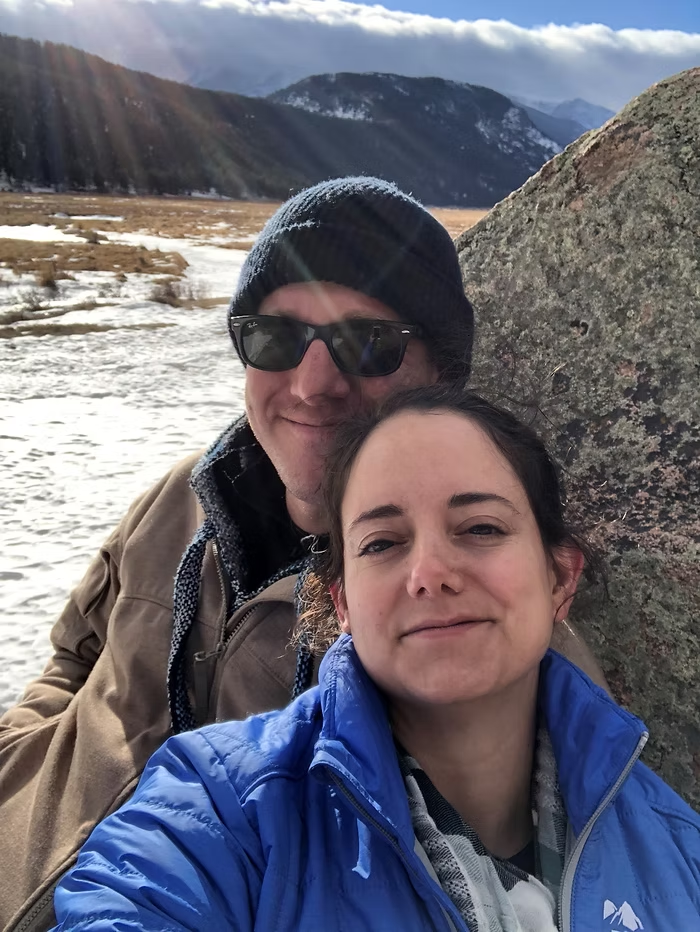
My Fourth Life Building on My Lessons Learned
I have been extremely fortunate in my career to have caring leaders and outstanding teammates. Many describe resiliency as the ability to bounce back, but I don’t necessarily agree with this. Often, we are told that if we hit the canvas, we are supposed to pop back up or fall off the horse to get right back on, but I approach resiliency a little differently. I have made it my mission that even if I am struggling to stand or stay on the horse, I will not go down. I have always loved the quote from the 2006 film, Rocky Balboa:
“Let me tell you something you already know. The world ain’t all sunshine and rainbows. It’s a very mean and nasty place, and I don’t care how tough you are, it will beat you to your knees and keep you there permanently if you let it. You, me, or nobody is gonna hit as hard as life. But it ain’t about how hard you hit. It’s about how hard you can get hit and keep moving forward; how much you can take and keep moving forward. That’s how winning is done! Now if you know what you’re worth, then go out and get what you’re worth, but you gotta be willing to take the hits, and not pointing fingers saying you ain’t where you wanna be because of him, or her, or anybody. Cowards do that and that ain’t you. You’re better than that!”
I have the benefit of knowing what the worst looks like. I have dealt with near-death experiences, serious illnesses, and significant mental health challenges. I still try to maintain a positive outlook and a constant drive to do better.
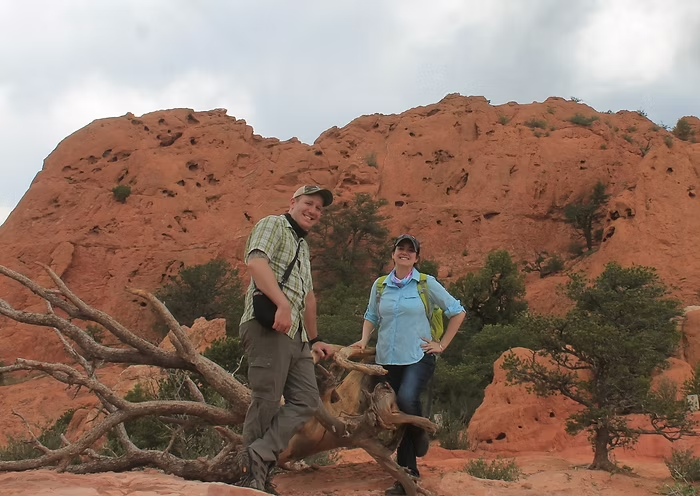
Looking back, I feel that I owe it to the team that helped get me to this point, including my fellow 9P000 patients. Not everyone in the patient squadron made it back to the Air Force, and sadly, some never recovered. I carry their memory with me. I have been asked several times why I still keep going and keep trying. I think it’s because I am working for something bigger than myself. I have purpose. Whether it’s my wife, my dog, my fellow TSOs, my Jiu-Jitsu team, or the Air Force as a whole, they need me at my best, and I will do whatever I can not to let them down.
Brazilian Jiu-Jitsu, in particular, has taught me patience, perseverance, self-sacrifice, and accountability. When I first started to get serious about my training, I struggled. Whenever I got short of breath or was being pressured too much by my opponent, I would have panic attacks. I would go back to my time of being ill and struggling to breathe. Reliving these moments was all but unbearable for me. Fortunately, I had an outstanding coach who took the extra time to make sure I felt safe, in control, and worked with me to push past it. As I continue to train, I have never felt a greater joy then watching the teammates I coached and trained with accomplish their goals. As a supervisor and senior non-commissioned officer, I carry these lessons with me. I am now more excited about my fellow TSOs’ accomplishments than I am my own. My Jiu-Jitsu team will tell you that one of my favorite things to say is: “I will probably never be a world champion, but I will do everything I can to make sure that I can help you become one.”
Today
Resiliency is more than a buzz word to me. It’s something that I strive to maintain and to embody. The hits are going to come and most likely keep coming. Hopefully by reading this one can see that you can take the hit and keep moving forward. I do not believe that I am that special. If I could make it through these things, I think anyone could, if they have the right mindset and are given the right tools. I hope one day – either while I am still in or after I hang up my uniform – I will be able to help others with my experiences. With this purpose in mind, I am now pursuing a degree in psychology. My wife Jessica and I currently live in Aurora, Colorado, with our cat and three dogs exploring the natural beauty the mountains have to offer. Though I may have burned through a couple of my nine lives, I have not wavered in my pursuit of excellence, commitment to service, and confidence that I can shape my destiny.
Huge thanks to MSgt Miller for allowing me to share his story in his own words. He’s interested in your feedback and hearing about how you’ve overcome your own resiliency challenges at [email protected].
